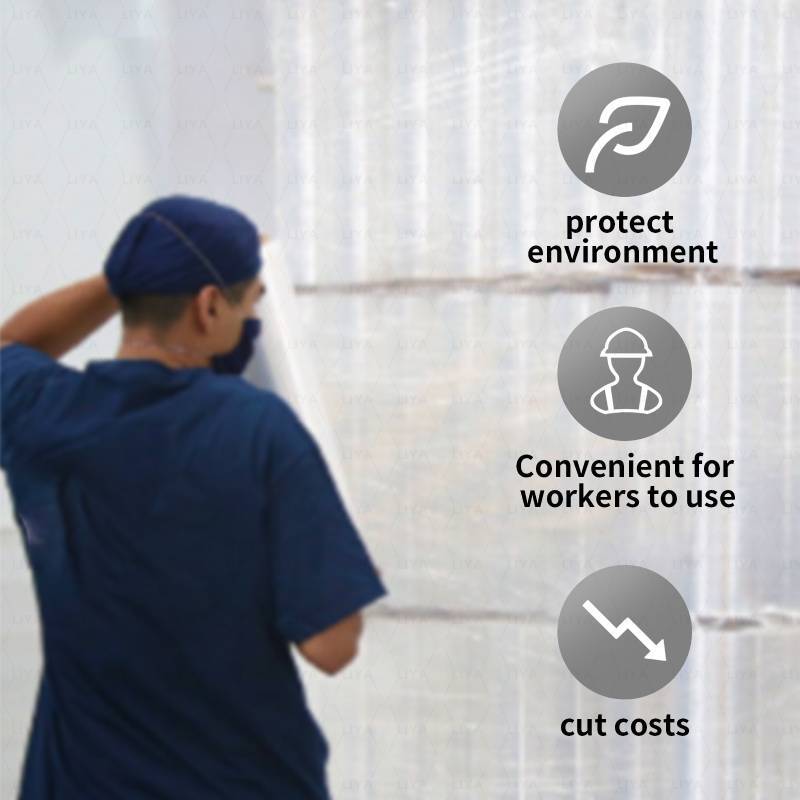biodegradable bin bags
The Importance of Biodegradable Bin Bags in Waste Management
In recent years, environmental awareness has surged, prompting individuals and businesses alike to seek sustainable alternatives to traditional plastic products. One of the innovative solutions gaining popularity is biodegradable bin bags. These bags are designed to decompose more quickly and naturally than conventional plastic, which persists in the environment for hundreds of years. Understanding the significance of biodegradable bin bags can help us make informed choices for better waste management.
Biodegradable bin bags are made from materials such as cornstarch, vegetable oils, or other plant-based ingredients. Unlike standard plastic bags derived from petroleum, biodegradable options are engineered to break down in composting conditions. This means that when disposed of properly, they can decompose into natural materials, including water, carbon dioxide, and biomass, enriching the soil instead of contributing to landfill accumulation.
The environmental implications of using biodegradable bin bags are significant. Traditional plastic waste clogs landfills and oceans, posing a threat to wildlife and polluting ecosystems. Many marine animals mistake plastic for food, leading to fatal consequences. In contrast, biodegradable bags can reduce the volume of waste in landfills and minimize plastic pollution in our oceans, thus protecting marine life and promoting healthier ecosystems.
biodegradable bin bags

Moreover, using biodegradable bin bags supports a circular economy, where materials are reused and recycled efficiently
. When these bags decompose, they can contribute to organic waste recycling initiatives. Communities can invest in composting facilities where organic materials, including biodegradable bags, can be processed, further reducing the burden on landfills and creating nutrient-rich compost for agricultural purposes.Despite their benefits, it is crucial to recognize that biodegradable bin bags are not a silver bullet for the plastic pollution crisis. For optimal effectiveness, they should be part of a broader waste management strategy that includes reducing overall consumption, reusing materials, and recycling whenever possible. The transition to biodegradable options should encourage individuals and organizations to reduce reliance on single-use items and to adopt more sustainable practices.
Education plays a vital role in the successful implementation of biodegradable bin bags. Consumers need to be informed about the proper disposal methods to ensure these bags decompose as intended. If biodegradable bags are thrown into regular landfills, they may not break down adequately due to the lack of necessary conditions for decomposition. Hence, it is imperative to guide consumers on how to use and dispose of these bags responsibly.
In conclusion, biodegradable bin bags represent a practical step toward addressing the global issue of plastic waste. By choosing biodegradable options, we take a proactive stance in reducing our environmental footprint. However, it is essential to pair this practice with broader sustainability efforts to maximize its impact. As we strive for a cleaner planet, embracing biodegradable bin bags can be a pivotal part of a comprehensive waste management strategy that encourages responsible consumption and promotes a healthier environment for future generations.
-
The Best Uses for Small Trash Bags in Daily LifeNewsJul.01,2025
-
Stylish Reusable Grocery Bags TrendsNewsJul.01,2025
-
Shipping Advantages of Using Bubble Envelopes BulkNewsJul.01,2025
-
How Compostable Mailing Bags Reduce Environmental ImpactNewsJul.01,2025
-
Environmentally - Friendly Bulk Poly MailersNewsJul.01,2025
-
Eco Friendly Custom Laminated Tote BagsNewsJul.01,2025
-
Have the freedom of customizing your custom mailers any way you want! Our dedicated packaging support will help deliver you the mailing experience you need to elevate your shipping experience to the next level! Start making a strong impression on your customers and stand out from your competitors! -
LIYA uses high quality raw materials which directly purchased from large enterprises domestic and overseas such as PetroChina, Sinopec, Sabic, Equate, ExxonMobil, Dow Chemical, Total, and Borouge, ensuring the price advantage and quality of the raw materials. -
LIYA uses high quality raw materials which directly purchased from large enterprises domestic and overseas such as PetroChina, Sinopec, Sabic, Equate, ExxonMobil, Dow Chemical, Total, and Borouge, ensuring the price advantage and quality of the raw materials.





